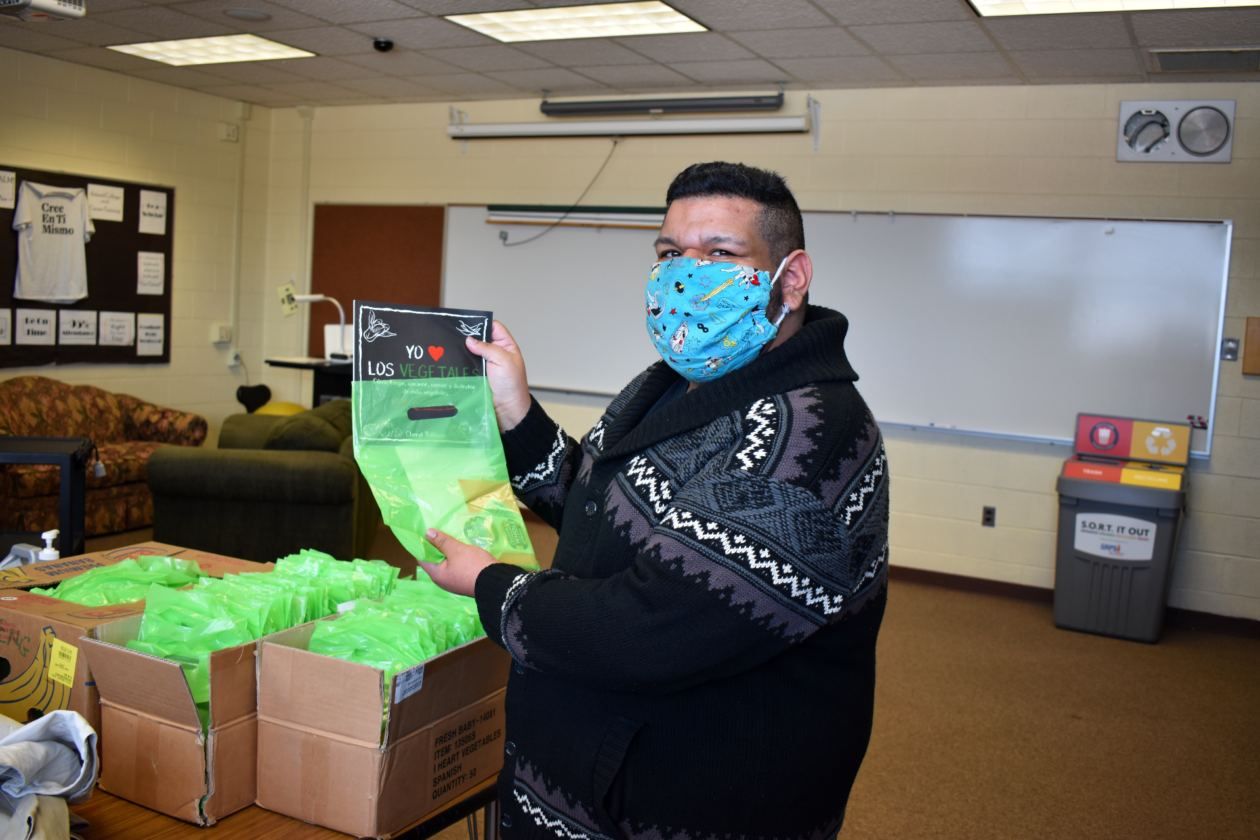Public schools offer free or reduced-price meals during the school day to kids who qualify, but it’s not always enough. Many of these kids come home to empty cupboards in the evenings and on weekends. And some kids don’t qualify but still struggle to get enough to eat.


Hunger warriors like Cheyenne, Sara and Pablo, community school coordinators at Grand Rapids Public Schools, do all they can to ensure their students have access to enough nutritious food to thrive. Each of their schools hosts recurring Mobile Food Pantries, which provide plenty of fresh food like dairy and produce to families in need. The schools also team up with our agency partners that run backpack programs, which provide evening or weekend meals.
We interviewed them about their efforts to fight child hunger.
What ways does your school ensure kids have enough to eat?
Sara: We offer nutritious breakfast and lunch to all students as part of the [USDA’s School Breakfast and Lunch Programs]. We offer Kids’ Food Basket sack suppers at the end of the day to students that opt-in for that service. We offer one Mobile Food Pantry a month for families to receive food if they are in need.
Pablo: Our cafeteria staff works diligently to ensure all students have what they need in food and balance on healthy choices. While showing students that the occasional chicken nuggets are okay, balance is everything with our students.
What has stuck out to you during your time serving at Mobile Food Pantries and in other hunger-relief efforts at your school?
Sara: I sometimes am surprised by who comes from the community to the Mobile Pantries. Sometimes I see families that I would not have guessed would have that need, but regardless they make the time to come.
Cheyenne: Sometimes we see kids come in late that head straight to class. The same kid begins to have behavior issues later in the day. Most times it’s because the kid came in hungry and they needed food! It’s such a simple thing but it makes such a big difference.
Why do you think it’s important to teach kids about healthy eating?
Cheyenne: Healthy habits need to start young. That way, they become more ingrained in our daily lifestyles.
Pablo: It teaches them responsibility, and that they can take their own health in their hands.
When did you first realize hunger was an issue in our community?
Pablo: I lived on the Westside for 15 years, and it was very apparent to me that it was a need.
Sara: When I was a volunteer coach for an elementary running program, I would run with students and sometimes they would complain about being hungry, or tell me about how they would go home and have nothing to eat after practice.
Cheyenne: When I started working as a MI Bridges Navigator in 2018, I helped many families gain access to food stamps [now called the Supplemental Nutrition Assistance Program]. I was very surprised to learn how little some families are earning and how that is affecting their food situation.
Help Cheyenne, Pablo and Sara continue feeding children facing hunger.

